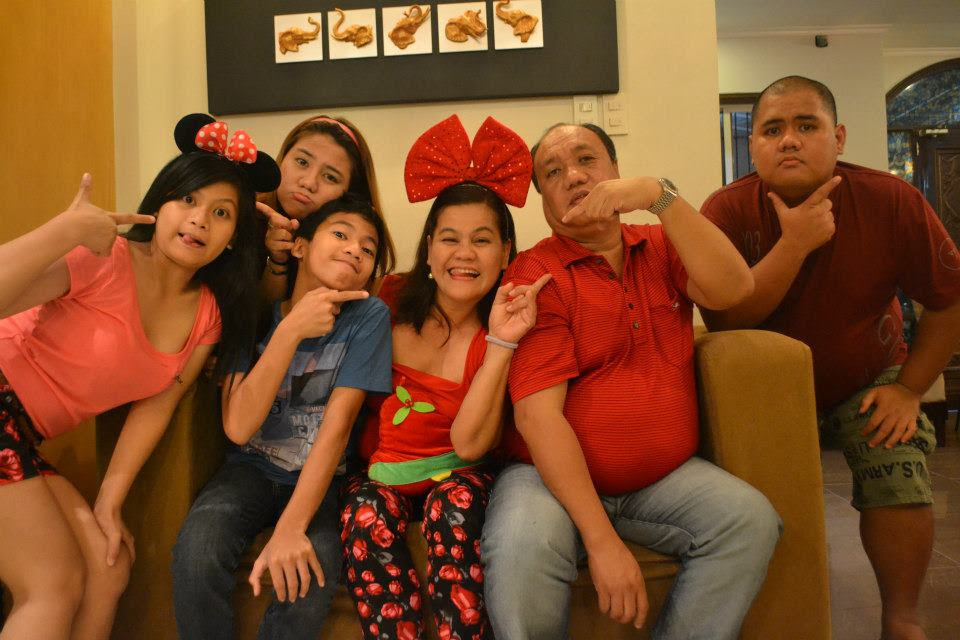This article appeared on 5 May 2014 in the print and on-line versions of Manila Bulletin's "Angels Talk," by Dang U. Koe, ASP Chair Emeritus.
A dilemma affecting many families of children with autism is the future of their children. Every family wants the best for their children, including a community that provides an environment and opportunities geared toward their development and well-being.
As their children grow up into adults, one question arises among these parents: “Who will take care of them when we grow old or when we are no longer in this world?”
 |
Happy Homes Housing Cooperative seeks to provide a residential community for adults with autism, like 27-year-old Vergil Alexis ‘Bokbok’ Tan, pictured here with his family. |
While some people with autism and other special needs grow up to be fully-functional members of society (thanks to the unwavering care of their parents, teachers, and others who grow around them and with them), such a case may be a challenge for whose cognitive and physical capacities leave them incapable to care for themselves, let alone become a working part of the society in general.
In the Philippines, parents of children with autism still have very few options on providing their children continual care and support. An option may be a housing community, where adults with special needs are sheltered under one roof and given care and activities that enable them to develop themselves and become the best that they can be. “A Special Place,” the flagship project of The Association for Adults with Autism, Philippines featured in this column sometime ago, is envisioned to be a residential community consisting of individual homes for adults with autism and facilities for work, education, therapy and recreation.
Dr. Lirio Covey, AAAP president, reported that they have settled on a site in Alfonso, Cavite and “will begin with a single home and four residents. There will be accommodations for a house parent and round-the-clock staff. We have a program coordinator who will be responsible for developing the residents’ educational, vocational, and recreational programs, as well as the training program for therapeutic and other support staff.”
Another option that is now taking shape is one where adults with special needs live together with their families and professionals working with special-needs individuals, all under one community. This idea is pushed by a group of education and therapy professionals, in the form of a cooperative that includes families of special-needs individuals and professionals as stakeholders.
Happy Homes Housing Cooperative was conceived by OneLife Foundation Inc. and ChildFind Therapy Center. It is being spearheaded by well-known Special Education professor Dr. Edilberto Dizon, with the objective of providing adults with special needs a special community that gives lifelong care, supervision, and guidance, together with their families; work in sheltered employment; and involvement in leisure activities. It also seeks to provide families a continuous supply of providers for their children with special needs.
Happy Homes offers amenities and services specially designed for families with special-needs members. Under this housing cooperative, members are eligible to be co-owners of the community. In this setting, adults with special needs through their families, as well as professionals, are given the option of occupancy of housing units, all specifically tailored for their needs.
To take advantage of these opportunities offered by Happy Homes located in Tanza, Cavite, interested parties (consisting of families and professionals) are required to join in both the OneLife Foundation and the Happy Homes Housing Cooperative as members, and are expected to make financial contributions to the cooperative.
Dr. Dizon said that “more than just the provision of shelter, these member-families – as an organization – together with member-support persons plan, implement and manage a cluster of interrelated programs and services. These are psychosocial and educational intervention, recreation and sports, life-skills training including vocational, and employment and possibly entrepreneurship. Families are encouraged to put up work-training and income-generating projects / businesses where persons with special needs can apprentice and work in and which they can eventually operate and manage. Together, they join hands and lead persons with special needs toward increased maturity and autonomy.”
To know more about Happy Homes Housing Cooperative, you may visit their website at www.happyhomeshousingcoop.org.
ASP’s monthly family support group will be held on May 17. For details, follow us on Facebook or visit www.autismsocietyphils.org.



 Posted in:
Posted in: 


1 comments:
Your program is of great help to us.Good luck and may God bless you.
Post a Comment